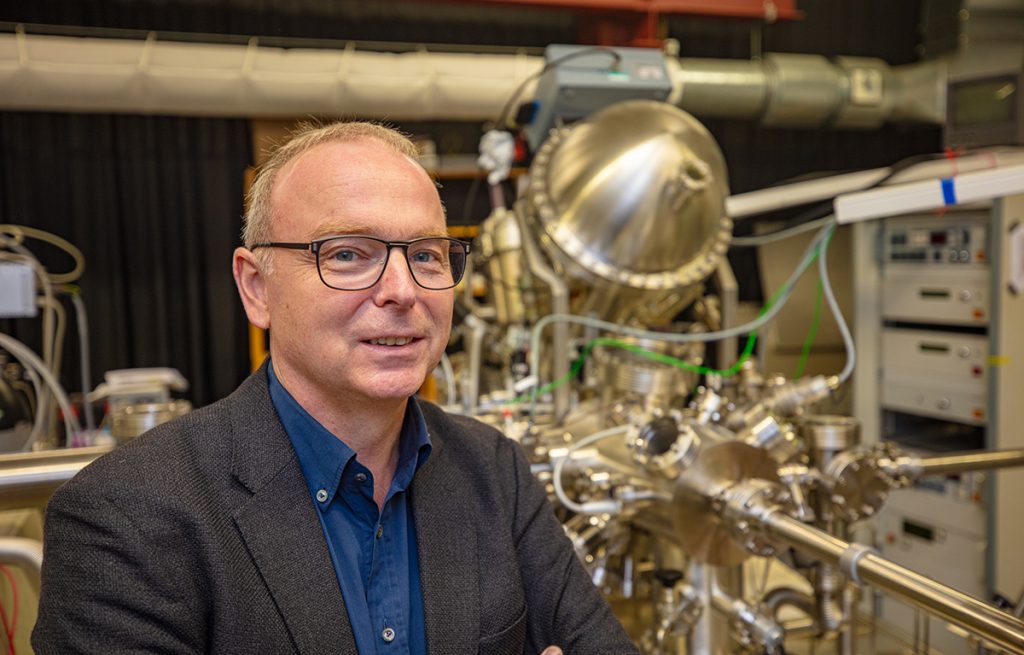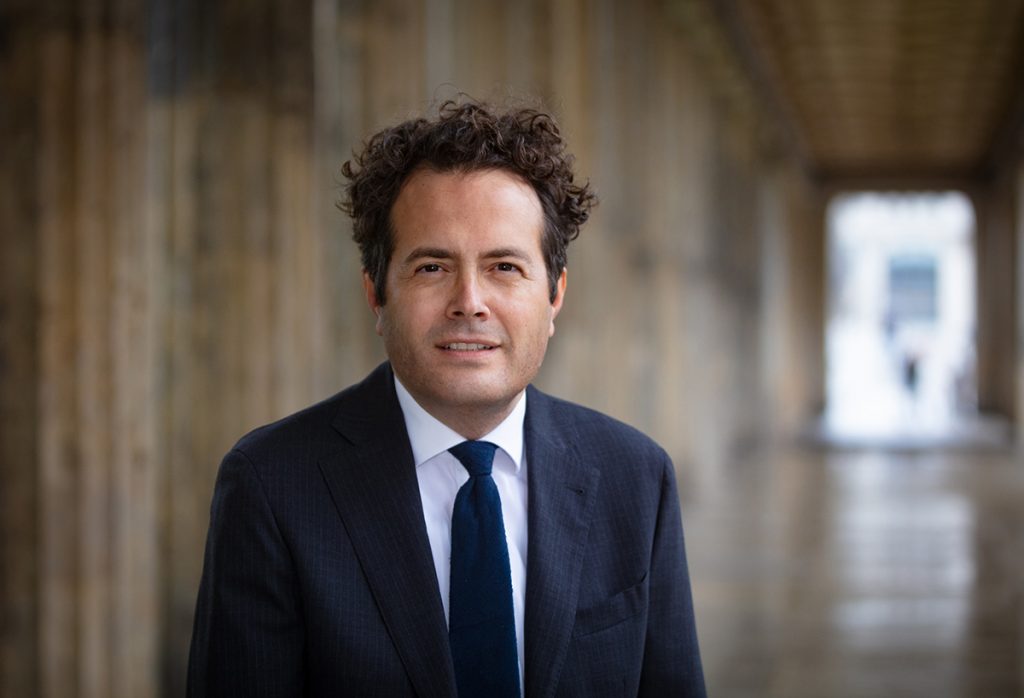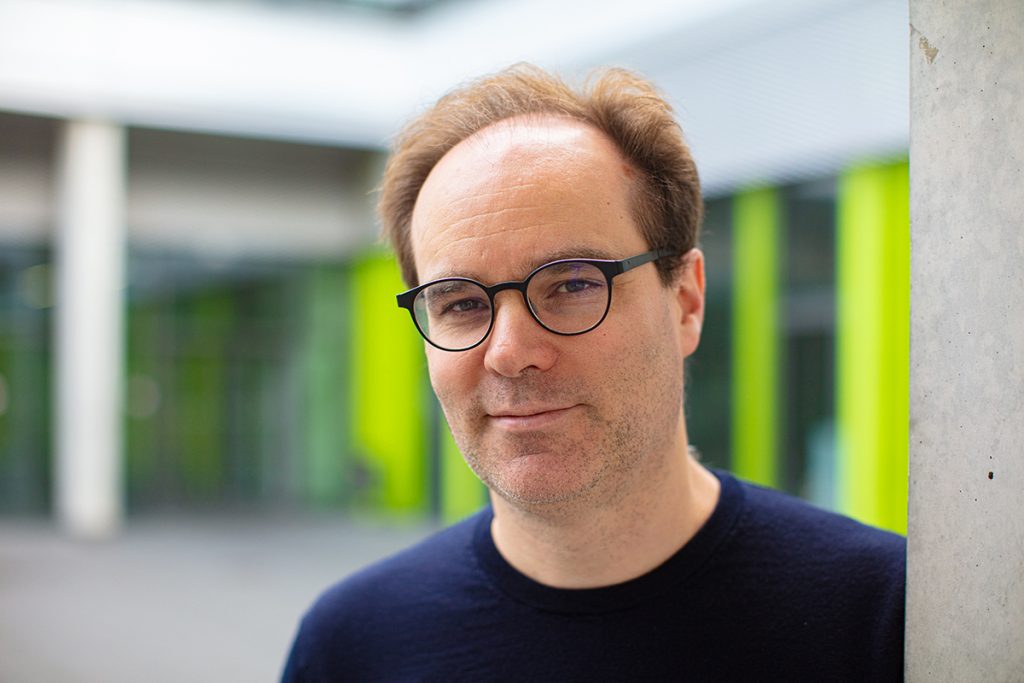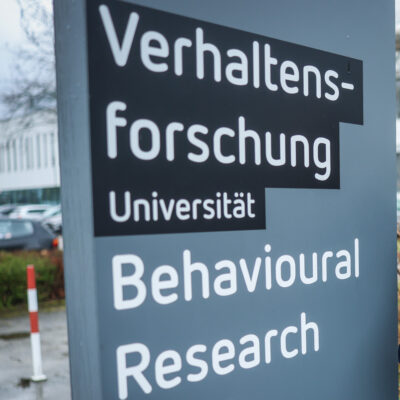With today’s technology, it is possible to store enormous amounts of data and analyse them very rapidly. Algorithms work out patterns and relations automatically and deliver explanations and predictions on whatever specific object of research. Does this mean that in future researchers will rely on big data and artificial intelligence to make their scientific statements? And, as a consequence, will they increasingly move away from the great theories with their claims of delivering comprehensive explanations? This will be the topic of the conference celebrating the 50th anniversary of Bielefeld University on 14 and 15 November. Its title: ‘The Theoretical University in the Data Age. Have the great theories become obsolete?’
‘It is not just the great theories that have always been questioned, the same applies to mid-range theories as well. However, nowadays, criticism has taken on a completely different quality. Digitalization has the ability to change the foundations of sciences. That is why we are examining the way big data research is affecting the practice of theory formulation and the attitude towards theories across all disciplines,’ says Professor Dr Angelika Epple. The historian is chairwoman of the Scientific Board for the anniversary academic programme.
Atheoretical but correct

For a long time, the only option available to researchers who wanted to predict something was to develop a model. Models often use simplifications to describe things in the real world. ‘Nowadays, big data and artificial intelligence offer an alternative to this approach,’ says Professor Dr Armin Gölzhäuser from the Faculty of Physics. ‘They deliver—without using concrete models—what are often very accurate predictions.’ Computers comb through and analyse all the available data; algorithms are used to sieve out the most probable result. ‘In the coming years, they will flood us with many atheoretical but correct statements.’
For Gölzhäuser, big data technology supplements theory-based research. ‘The great theories in the natural sciences retain their predictive power.’ He points to fundamental theories such as the general theory of relativity on gravitation or quantum theory on matter and light. ‘These great theories are widely accepted because they have been confirmed by so many experiments. They form the basis for the natural sciences and are in no way obsolete.’ Gölzhäuser is one of the organizers of a panel at the anniversary conference that will be looking at interdisciplinary models for a complex world. One topic is the future role of data-driven models.
Data-driven models are also based on theory

‘Automated data analysis does not just lead to new models,’ says Professor Dr Barbara Hammer from the Faculty of Technology where she specializes in machine learning. ‘Nowadays, with the sheer volume of big data, we can also test more complex relationships empirically. This enables us to optimize the features of a model and make more precise statements and predictions than before.’ However, the computer scientist cannot manage this without theories: ‘My research particularly addresses algorithmic
learning theory. The aim is to develop data-driven models so that they will actually function.’ Hammer thinks that big data analyses have enormous potential when it comes to understanding and predicting such complex phenomena as human behaviour. ‘For the first time, new sensors allow the automated observation of a number of processes.’
For example, sensors in industry can be used to record the oscillations of rotating machines as a frequency pattern, to automatically analyse
whether there are any deviations from the normal oscillation pattern, and recognize these at an early stage to avoid errors in production. Barbara
Hammer is one of the organizers of a panel at the anniversary conference that will deliver insights into research on big data.
Digitalization is leading to new scientific practices

Today, big data technology is no longer limited to the natural sciences and engineering. It is impacting on all academic disciplines. Although this technology was first used, for example, to decode the human genome, nowadays, data mining can also be applied to automatically analyse literary
text corpora. ‘The everyday practice in the humanities continues to be the meticulous reading and critical analysis of texts.
Nonetheless, digitalization is extending and changing practices in the humanities,’ says Professor Dr Carlos Spoerhase from the Faculty of Linguistics and Literary Studies. ‘This means that we also have to take a theoretical approach to dealing with the new perspectives and problems that emerge from digitalization in text studies, history, and the social sciences,’ says the literary scholar. In addition, ‘digital media are themselves becoming sources of analyses—such as, for example, brief texts on Twitter.’ Spoerhase is helping to organize the panel ‘Contemporary Text Cultures’ at the anniversary conference. The panel will address will address how and with which theoretical implications digital media are changing the way texts are handled today.
Theories indicate the given research perspective

Have the opportunities emerging through digitalization made the great theories unattractive? ‘Many in the social sciences believe that the end
of the great theories happened many decades ago anyway,’ says Professor Dr Tobias Werron from the Faculty of Sociology. He is organizing a panel for
the anniversary conference on theorizing contemporary society. ‘Great theories such as Marxist social theory or structural functionalism become problematic when they are applied as self-contained philosophical systems to interpret the world. This is when they start aiming towards universality without being confirmed empirically.’
Werron is convinced that ‘science cannot deliver one-hundred per cent certainty.’ Theories compete with each other to describe reality. ‘In science, every statement is provisional—this was already the way things were before big data, because systematic criticism is simply one of the mechanisms of science.’ If a scientific statement has survived criticism, it can be taken to be reliable, but with a caveat: there may come a time when it will be replaced by a more precise statement. ‘And one of the reasons why this control functions is because we currently have a juxtaposition of both great theories and mid-range theories,’ says Werron. The sociologist sees great theories as generators of hypotheses that then have to be backed up and further developed through empirical research. ‘Even if they work with big data technology, researchers still have to indicate the basis for their research and from which perspective they are using algorithms. Theories deliver the conceptual tools for this and help to formulate open questions and focus on individual phenomena.’
‘Big data are going to exert an increasing influence on our lives,’ says Armin Gölzhäuser. Even today, big data analyses are used to predict share prices and traffic jams. Security authorities apply the technology to search for suspects. Gölzhäuser raises the question: ‘What is the relationship between models based on data that deliver correct predictions and theoretically based models that deliver incorrect predictions? A question that science would be well advised to pursue.’
This article is a pre-publication from BI.research, the research magazine of Bielefeld University. The new issue of the magazine will be published in November 2019.




